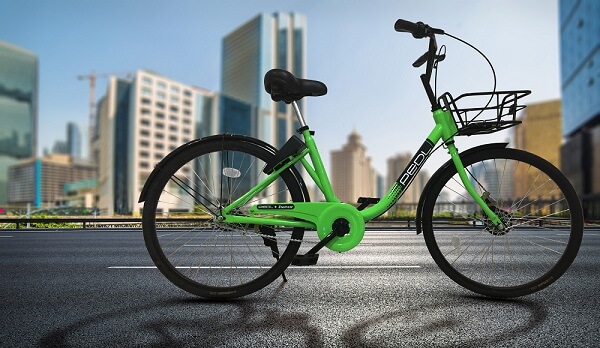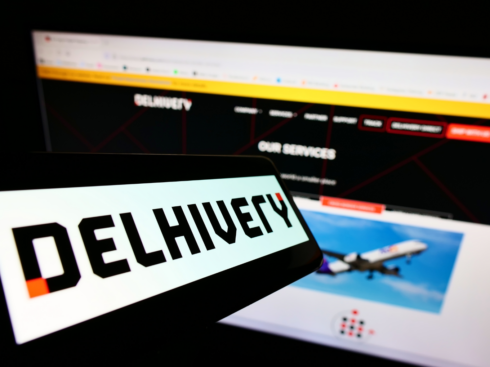
SUMMARY
Wunder Recently Launched The Revamped Version Of Its Carpooling App In Three Indian Cities
The German carpooling app Wunder has forayed in India and has recently launched a revamped version of its global app in line with the urban mobility needs of the Indian community. The app entered India in early 2017 with a soft launch in three cities viz. New Delhi, Bengaluru, and Mumbai.
First launched in 2014 in parts of Europe, Wunder has already made its mark in cities such as Manila and Cebu of Philippines. The vision of the Hamburg headquartered company is to build a new form of the public transportation system for the most gridlocked cities in the world and solve the problems of urban mobility.
Essentially, Wunder Carpool aims to position itself as an alternative to existing public transport mechanisms such as buses, metros and ride-hailing options such as Ola and Uber. The main purpose is to build a community which is aware of the urban mobility problems their country is facing and is willing to contribute to it.
The Wunder carpool app thus aims to encourage people who are traveling in the same direction to share their rides as a community initiative to reduce pollution and decongest roads, rather than making it as an option to earn money. “If talked about India particularly, this is a real problem for not only the Tier I cities but also for the Tier II and Tier III cities. The only way forward is not to put more cars on the road going forward,” says Rachit Shadra, Growth Manager at Wunder Carpool.
With a team of 55 people of 26 nationalities, Wunder carpooling app has so far reached 700K global users and 300K Indian users. The startup has already raised Series B funding round and notes eminent investors such as Blumberg Capital, Piton Capital, iEurope, German Startups, and Cherry Ventures.
Wunder Carpooling App in India: Unwrapping The Revamped Version
After testing waters for almost six months in India, this week, the company launched a revamped version of the global Wunder Carpool app. As claimed by the company, the revised version is based on the feedback from over 200 community members in both India and Philippines, while picking up the most common ones.
“We have been running our previous version in Manila for more than a year and a half, and have got a decent traction there. But, when we launched the same app in India, and we offered people to try the app, it was not good enough and they ended up not using it,” he adds.
The team then took a community first approach (like in every other market they have taken), to understand the exact issues and requirements of the people. Within a month, it figured out the certain specific issues and revamped the entire suite in sync with the needs of all its global consumers and the community.
The new version includes more safety features with added convenience and flexibility. For instance, there are now multiple verification levels for the drivers and co-passengers, while one can book a ride in just four clicks. Also, one can switch his profile to that of a driver or passenger as per the requirement. Here is a video to showcase the other new features added to the revamped version.
As Rachit explains, “This is not something which you can use to earn money or make it an alternative to your job. While there is no restriction on usage of the app, the carpooling app is particularly meant to be an option which you can utilise for your daily commute to office or work. At the same time, you can contribute to the environment, plus the driver can get around 50% of the fuel cost shared per month.”
Challenges Ahead And The Market Opportunity Wunder Found In India
Not only did the Wunder Carpool leadership team – Gunnar Froh (CEO), Samuel Baker (COO) and David Jeusette (CTO) find the Indian business landscape less confrontational, but also more welcoming compared to the other markets that they have come across.
As per Gunnar, the basic factors they look for entering into any country are the openness of the people to let others share their private cars, Internet and smartphone penetration, friendly government policies towards the adoption of alternative methods of commute, level of acceptance to tech and the overall stability of the business environment.
“The market opportunity in the carpooling segment is massive in India. Delhi alone, with a population of around 25 Mn has at least 10 Mn commutable trips. If you include the entire national capital region into this, then the number could possibly be at least 60% more. Add to it the other metropolitan cities of the country and you see the enormity of the opportunity available in this segment. Our primary mission is taking cars off the road in these cities to ease traffic congestion and hence, lower pollution levels,” added David.
Further, the primary differences that Wunder carpool team observed are on the basis of the local culture in India. For example, they found that the carpooling market in the Philippines is primarily driven by the spirit of sharing as a whole whereas the carpooling market in India is driven specifically by the sharing costs aspect of it.
However, understanding the Indian market needs was not sufficient for Wunder and the team had to face its share of challenges. The biggest initial challenge that they faced was to build liquidity in the market. Since the app works on a marketplace model, it was extremely important to ensure that there was a stable supply of drivers for all the passengers being acquired who were willing to carpool and the other way around.
“But, the biggest challenge that Wunder faces right now is its establishment as a viable alternative to ride-hailing companies. We are fully committed to solve the very real problem of traffic in the world’s most gridlocked cities and we believe that carpooling is one of the only ways to reduce the number of cars on our roads,” added Samuel.
The Ever Increasing Urban Mobility Load In Indian Landscape
In essence, the market opportunity for Wunder describes the urban mobility load India is bound to carry, despite taking several proactive measures.
If we go by the numbers, by 2030, India will see the rise of some 68 urban sprawls, each with a population of more than 1 Mn, while Europe will see only 35. In sync with this, with all other issues, will come the problems of urban mobility including increased levels of congestion, pollution, inequality in access and more.
If we go by particular cities, as per Mercer 2017 Quality of Living Index, Delhi is the worst among Indian cities while Bengaluru lies lowest in infrastructure. Further, as per NUMBEO Pollution Index 2017 mid-year, Delhi/ NCR has been ranked as the most polluted zone worldwide, while in terms of traffic congestion, all including Delhi, Mumbai and Bengaluru are ranked in top 20 worldwide.
Furthermore, as per the latest reports, the carbon emission in India grew over 5% in 2015, even as global carbon emissions remained stable that year. Also, Climate Action Tracker, in its May 2017 report, has termed India’s efforts to reduce global warming and reach its set targets under the Paris Trade Agreement as ‘Medium.’
If this is not sufficient to explain the severity of the issue, consider this. As per a report shared by the International Energy Agency (IEA) in June 2016, it is expected that passenger car ownership in India will grow by 775% over the next 24 years. “In the new policies scenario, passenger car ownership grows from less than 20 vehicles per 1,000 inhabitants today to 175 cars per 1,000 people in 2040, and overall road passenger vehicle activity increases more than six-times,” stated the above report.
On one hand, this is a sign of economic growth and a number of opportunities for global car makers considering India to be a potential vehicle market in coming times. However, on the other hand, it is an alarming development from India’s overall climate point of view.

Image Credit: GIM International
Solving Urban Mobility Issues: Initiatives Taken By Indian Government And Other Startups
The Indian government is proactively engaged in taking a number of initiatives to turn towards renewable energy sources for its power requirements. Earlier, the Supreme Court banned all commercial non-CNG cabs in Delhi NCR with effect from May 1, 201, to curb air pollution. Prior to that in January 2016, Delhi CM Arvind Kejriwal implemented the odd-even formula in New Delhi between January 1 and January 15, 2016. Only odd or even numbers of cars were allowed on the road, depending on the date.
Recently, in May 2017, NITI Aayog also came up with a 15-year roadmap for transforming vehicle use. As per a report released by NITI Aayog, “India could save as much as $60 Bn in energy costs by 2030 and one gigatonne of carbon emissions between 2017 and 2030 by adopting more electric and shared vehicles.”
India is also looking to sell only electric cars by 2030. However, this initiative comes with a big hurdle of establishing the infrastructure to facilitate smooth operations of electric cars, like setting up charging stations across the nation, etc. Further, in its latest initiative to solve the urban mobility issues, the Indian government also proposed to examine the use of private vehicles as taxis for carpooling.
Apart from the Indian government, there are several startups and companies who are also helping the country in its drive to decongest roads and reduce pollution levels. On one hand, the leading automobile manufacturers like Ford, Mahindra & Mahindra, are busy building the required infrastructure to support the demand and supply of the future electric vehicle nation. On the other hand, there are startups like Jugnoo and ZoomCar who have recently introduced bicycle based services.
For instance, Jugnoo has added 50 bicycles in the system that are doing deliveries in three cities – Chandigarh, Noida, and Gurugram. As claimed, with 300+ daily deliveries by these bicycles, Jugnoo has reduced the cost per delivery by 30%. Going a step further, after launching its self-drive car sharing services in 27 cities, ZoomCar has now introduced its technology-enabled cycle sharing service, PEDL. Zoomcar expects to cross 10,000 cycles on road in 2017 with much larger expansion plans to follow in 2018. After several weeks in the pilot, PEDL presently operates over 500 cycles in three cities – Bengaluru, Chennai, and Kolkata.

Recently news also surfaced that Beijing-based bicycle sharing startup, Ofo, is set to enter the Indian market by the first half of 2018. Valued at $2 Bn, the unicorn recently launched operations in Adelaide. Earlier in September 2016, Ahmedabad-based transport company Chartered Speed reportedly entered into a partnership with Germany-based startup Nextbike, in a bid to launch a digital bicycle sharing platform in 100 Indian cities.
Editor’s Note
The German carpooling app Wunder has entered India at a time when the efforts are being taken from all sides to curb the urban mobility issues. Although the timing is right and market opportunity seems bigger, one cannot deny the level of competition Wunder currently faces to position itself well in the Indian market.
However, the Wunder leadership team believes that the amount of data they possess is sufficient to give them an edge over existing peers. While local startups are limited to particular cities, their globally scalable model is an added advantage. Also, the Wunder app is already made on the premise that people in different cities even in India carpool really differently. For instance, in Delhi, there are very specific business hubs such as Noida, Gurugram, Ghaziabad, where people are usually living and then traveling to work. But Bengaluru has integrated business hubs within the city itself, and the people live much closer to their office, so the overall usage of the app is entirely different in every city, which Wunder is thus trying to leverage.
The company is currently not looking for monetisation but in near future has the options such as transaction fees, advertisements and using B2B modes to earn revenue. Aiming to hit 3 Mn trips globally by the end of 2017, in the near future, Wunder may also have the option to work with the Indian government, if they are able to make an impact on the market.
Solving urban mobility issues is the need of the hour and India definitely needs more initiatives like Ofo, PEDL and the Wunder app. The way the Indian government has opened its gate for foreign startups solving these global issues will certainly inspire more such initiatives from homegrown companies too. While carpooling is just one part, it’s time that the entire nation should come forward to help solve the urban mobility issues and makes its contribution in building a cleaner environment for the coming generations.


























